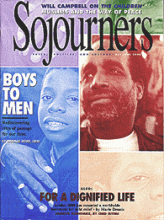Thirty-five years ago, on June 12, 1963, Medgar Evers was assassinated in front of his home on the west side of Jackson, Mississippi. At the time of his death, Evers was 36—still near the beginning of a career as the most important leader of the African-American freedom struggle in the state. He was a man deeply committed both to his native soil and to the rightful destiny of black people upon it. Evers would be an old man now if he had lived, and Mississippi would be a better place.
The Evers assassination quickly entered the national litany of Southern horrors, especially after his accused killer escaped with two mistrials. Bob Dylan wrote a song about it. In subsequent years there were books and a made-for-TV movie. The death of Medgar Evers took a niche, between the lynching of Emmett Till (1955) and the killing of four civil rights workers in Neshoba County (1964), in the list of things people in the rest of the country knew about Mississippi.
I’ve spent a lot of time over the years thinking about Medgar Evers, his death and his killer. Any conscious person from Mississippi would. The killing, and Evers’ subsequent absence from the scene, had an enormous impact on the course of our history.
It also had an enormous impact on me. Of all the cataclysmic events that struck my home state during my childhood, this one hit closest to home. Byron De La Beckwith, the man who killed Medgar Evers, came from my hometown of Greenwood, Mississippi.
A HERO TO SOME, Beckwith came home after his second trial to a welcome banner downtown. The local police would put him in the front seat and drive around the parts of town where black people lived, just for fun. Beckwith went to the Independent Methodist Church (founded to protest Methodist support for the civil rights movement), and continued his lifelong habit of writing letters to the editor of the local paper denouncing the omnipresent blacks, Jews, and Communists.
Read the Full Article
